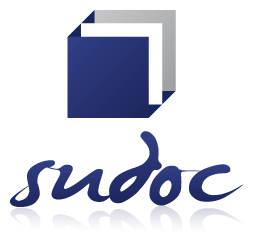The Necessity and Application of Educational Technology in Teaching
DOI:
https://doi.org/10.63053/ijhes.38Keywords:
Educational media, Education, Learning, TechnologyAbstract
Educational media have undergone significant changes and transformations with the passage of time and the advancement in science and technology, and for this reason, different educational media have been used by educational centres in each period and according to the available facilities. Any educational system will be successful in fulfilling its mission if it has teachers with scientific qualifications familiar with educational methods and equipped with educational, occupational and professional skills. Among these very efficient educational methods are educational technologies and tools. In 1954, the Ford Foundation launched educational television and introduced it to schools, and the US Senate passed the National Defense Plan for Education, and schools immediately started buying educational tools. In this way, modern devices and tools entered the field of education and were used to facilitate and improve it. In general, educational technology can be considered as a set of methods and instructions that are used by using scientific findings to solve educational problems, including design, implementation, and evaluation in educational programs. This article focuses on the use of new technologies in teaching to improve the quality of teaching and also facilitate the teacher's work, it has been compiled with a descriptive and analytical method and using library information, and we are trying to find out which tools What tools and equipment can be used in teaching and what should be the conditions of working with them so that it can help students' learning and speed up the teacher's teaching work.
References
Bagheri Far, Musa and Ebrahimi Shahroudi, Kulthum and Dehwari, Farhoud and Kordzabelli, Farhanaz, comparison between education and training today with education and training of the past, Proceedings of the National Conference of Modern Researches in Management, Economics and Human Sciences, Kazarun, 2016.
Bakhshi, Hamed, The role of new technologies in education, collection of articles of the first national electronic congress of Iran's new technologies to achieve sustainable development, 2013.
Sakhaei, Shahnaz and Dehghani, Marzieh, the necessity and importance of educational technology in deepening learning, collection of articles of the first international conference on management, economics, accounting and educational sciences, Sari 2014.
Shakib, Alireza (2019) "Teacher, yesterday, today, tomorrow" taken from his blog.
Aliabadi, Khadijah, 2013, Introduction to educational technology, 19th edition, Tehran, Payam Noor publishing house.
Faradanesh, Hashem, 2010, theoretical foundations of educational technology, Tehran, Samt Publications.
Kargar, Ehsan and Ghasemi, Amin, investigating the effect of educational media in optimizing the teaching and learning process, International Congress of Islamic Sciences and Humanities 2015.
Gold and Kolb, 1384, Culture of Social Sciences, translated by Mohammad Javad Zahedi, second edition, published by Maziar.
Walter Willinger, Ramesh Govindan, Sugih Jamin, Vern Paxson, and Scott Shenker (2002). Scaling phenomena in the Internet, in Proceedings of the National Academy of Sciences, 99, suppl. 1, 2573–2580
Downloads
Published
How to Cite
Issue
Section
License
Copyright (c) 2023 Authors

This work is licensed under a Creative Commons Attribution 4.0 International License.
The journal is licensed under a Attribution 4.0 International (CC BY 4.0).
You are free to:
- Share — copy and redistribute the material in any medium or format for any purpose, even commercially.
- Adapt — remix, transform, and build upon the material for any purpose, even commercially.
- The licensor cannot revoke these freedoms as long as you follow the license terms.
Under the following terms:
- Attribution - You must give appropriate credit , provide a link to the license, and indicate if changes were made . You may do so in any reasonable manner, but not in any way that suggests the licensor endorses you or your use.
- No additional restrictions - You may not apply legal terms or technological measures that legally restrict others from doing anything the license permits.












